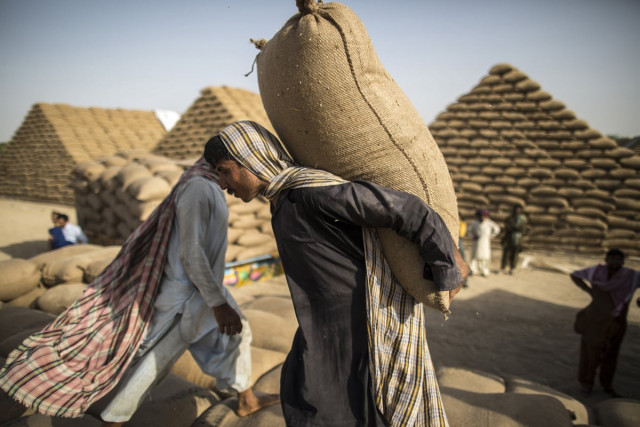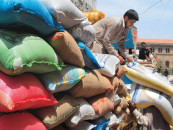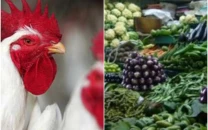Food security: Call for rationalising support price mechanism
Wheat policy pricing structure discussed by experts.

Govt needs to step up the efforts in the agriculture sector..PHOTO: REUTERS
Experts have called upon the government to rationalise the wheat support price mechanism and institutionalise the role of the middleman.
Economists and food security experts discussed the country’s wheat policy pricing structure at a session on “Pakistan’s Wheat Economy and Food Security” at the Sustainable Development Policy Institute (SDPI) on Tuesday.
Dr Asif Saeed Khan of the University of Auckland, in his keynote address, said wheat contributed to 60-70 per cent of Pakistan’s food security paradigm. “In Pakistan, growth in the agriculture sector is fundamental for overall growth, of which wheat production is central,” he said.
Khan added proper cost and benefit analysis of wheat supply chain should be done and international trends should also be taken into account while determining the support price. “This support prices mechanism gives rise to state intervention, which distorts functioning of the market.”
SDPI Executive Director Dr Abid Qaiyum Suleri said the Punjab government was likely to get more than Rs100 billion of commercial loan at a very high markup for procuring 3.5 million metric tons of wheat this season, which is likely to create another type of circular debt. Suleri said the current support pricing mechanism was fiscally unsustainable. He also suggested institutionalising role of the middleman.
“After the fuel crisis, wheat-flour crisis is on the horizon. The markup may be passed on to the consumers and in the end neither the farmer nor the consumer will gain anything from high support price,” Suleri said.
“The government has already accumulated Rs75 billion of commercial debt under the head. It buys wheat from the farmers at prices higher than the market and sells at cheaper rates to flour mills. In the end, flour mills sell flour to the end user at a higher prevalent market rate,” he added.
University of Agriculture Faisalabad Vice-Chancellor Dr Iqrar Ahmed Khan called for reforming the colonial-era supply chain according to the current realities. “Ignoring rural poverty would lead to more slums in urban areas. This would erode our social fabric,” said Khan.
Published in The Express Tribune, January 28th, 2015.



















COMMENTS
Comments are moderated and generally will be posted if they are on-topic and not abusive.
For more information, please see our Comments FAQ